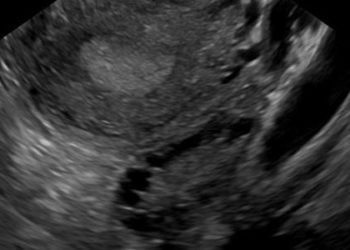Fecal microbiota transplantation not associated with weight loss in bariatric surgery patients
1. In this randomized controlled trial, from baseline to 4 months following fecal microbiota transplant (FMT) or placebo in obese adult patients, there was no statistically significant reduction in weight compared to baseline or between the two groups.
2. Following bariatric surgery, there was a significant reduction in weight in both patients who received FMT and who received placebo. There were no between-group differences with respect to weight reduction.
Evidence Rating Level: 1 (Excellent)
Obesity is a growing global health concern, associated with multiple comorbidities, a decreased quality of life (QoL), and increased mortality. With respect to treatment options, surgery remains the most effective strategy to treat severe obesity; bariatric surgery has been found to reduce mortality and improve quality of life (QoL). In recent times, intestinal microbiota has aroused interest as a potential target for the treatment of obesity; previous research has shown improvements in insulin sensitivity, abdominal adiposity, and lipid metabolism following a fecal microbiota transplant (FMT). In particular, patients with severe obesity have been found to harbour intestinal microbiota with decreased bacterial diversity and microbial gene richness when compared to healthy controls. This randomized controlled trial studied the effect of FMT on the outcomes of bariatric surgery. 41 adult patients with obesity were recruited from hospitals in Finland from January 2018 to March 2021 and randomized in a 1:1 ratio to receive FMT from a healthy lean donor or autologous placebo by gastroscopy. The primary outcomes were reduction in body weight (change in BMI compared with baseline), percentage of total weight loss (TWL), and percentage of excess BMI loss (EBMIL). With respect to baseline characteristics, the FMT group had a significantly higher QoL than the placebo group (P=.02). From the baseline to the end of follow up, there was a 10.4 reduction in mean BMI in the FMT group (95% CI, 9.2 to 12.5; P<.0001), and a 10.15 reduction in the placebo group (95% CI, 7.8-12.5; P<.001). However, the percentage of total weight loss from baseline to the 2- and 4-month time points was not significant in either study group, but the percentage of TWL from baseline to the 6-month time point was significant in both groups: 4.8% (95% CI, 7.0% to 2.7%; P<.001) in the FMT group and 4.6% (95% CI, 7.6% to 1.5%; P=.006) in the placebo group. However, there was no difference observed between the groups at any time point. Regarding secondary outcomes, the participants’ mean fat percentage did not significantly decrease from baseline to 4 months, but significantly decreased from baseline to the end of the follow-up at 12 months after surgery. However, there were no significant differences observed between the groups. In addition, regarding blood biochemistry and quality of life, there were again no differences between the FMT and placebo groups. Overall, following FMT or placebo administration, there were no significant changes in body weight until bariatric surgery, after which there were no significant differences between the two groups. A major limitation of this study is the small sample size, which increases the risk of type II error. Further studies with larger sample sizes and longer follow up would be essential to better understand the effects of FMT.
Click to read the study in JAMA Network Open
Image: PD
©2022 2 Minute Medicine, Inc. All rights reserved. No works may be reproduced without expressed written consent from 2 Minute Medicine, Inc. Inquire about licensing here. No article should be construed as medical advice and is not intended as such by the authors or by 2 Minute Medicine, Inc.








